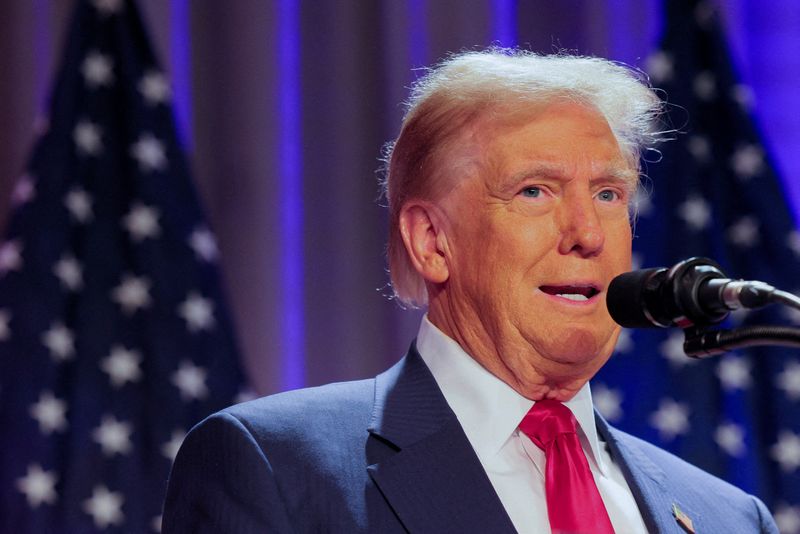US stock futures steady after Wall St soars on dovish Powell; Nvidia earnings due
Investing.com -- Macquarie analysts argued in a note Thursday that US President Donald Trump’s approach to trade policy, particularly his use of tariffs, is rooted in game theory principles of randomization and brinkmanship.
According to Macquarie, “randomization and brinkmanship are two game-theoretic strategies being used by the US to elicit concessions from international trade partners.”
“By preventing opponents from exploiting predictable behavior, randomization gives a player an advantage, in a micro context,” added the firm.
However, Macquarie warns that this unpredictability comes with risks. “In the macro context, there’s a risk that too much policy uncertainty ensues, to cause a recession,” the analysts note.
Despite this, they contend that Trump is using brinkmanship—deliberately creating economic risks—to strengthen his negotiating position.
“By feigning that he’d allow a recession, Trump improves his advantage even more,” they explain. Ultimately, Macquarie believes that “it is mainly concessions – rather than permanent tariffs – that will ensue.”
The report also highlights how this strategy impacts financial markets. “Randomization and brinkmanship are disconcerting – they induce flight to quality and ‘assuredness,’” leading to a stronger U.S. dollar despite trade tensions.
Macquarie suggests that Trump’s broader economic policies, including cost-cutting measures in the federal government, are also part of a long-term strategy to manage U.S. debt.
“Better to address the issue of debt and deficits willingly now, instead of being forced to do so later, in a crisis,” they write. While these tactics introduce short-term risks, Macquarie sees them as part of a calculated effort to reshape global trade and monetary policy.
